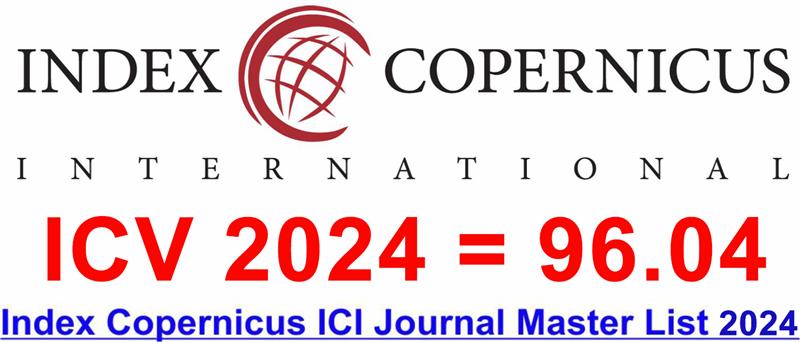Amalaki Based Business Initiatives of Rural Women in West Bengal, India
DOI:
https://doi.org/10.60072/ijeissah.2025.v3i03.001Abstract
Enhancing Business opportunities as a valuable weapon for women progress and empowerment, particularly for Indian rural women facing economic and challenges. This research paper investigates the innovative influence of Amlabased enterprise mobility on the healthy and prosperous of Rural privilege Women in West Bengal, India. The main objective of this study is to explore and interpretation the Amla based business initiatives led by rural women in five districts of West Bengal, namely Birbhum, Purulia, Bankura, Nadia and Murshidabad. It aims to understand their socio economic impact and potential for sustainable rural entrepreneurship. This study was conducted using mixed method approach, combining surveys, interviews and field surveys across with rural women engaged in Amalaki based enterprises. Data was collected from selected districts in West Bengal to assess economic outcomes and business practices. The study found that seventy eight percent of women reported increases household income levels and self reliance among rural women. Hair oil and juice emerged as the most profitable products. Limited market access and lack of training remain key challenges. Overall, these initiatives show strong potential for promoting rural women’s entrepreneurship. Amla means the sustained, it is the component of Ayurveda remedy which is relieves constipation abdominal pain and enhances immunity. The findings recommend that Amla based enterprise as well as promote financial resilience but also impart a feeling of control and adaptability among rural women in West Bengal. This research paper shows how household community development and holistic wellbeing in society.
Keywords:
Amla, Business, Community Development, Rural Area, Women EmpowermentReferences
Banerjee, A., & Saha, S. (2018). Empowering rural women through self-help groups in West Bengal. Journal of Rural Development, 37(2), 229–245.
Basu, S., & Chakraborty, R. (2020). Revival of traditional knowledge through local entrepreneurship: A case study of amla-based products in Eastern India. Indian Journal of Traditional Knowledge, 19(1), 144–151.
Baliga, M. S., & Dsouza, J. J. (2011). Amla (Emblica officinalis Gaertn), a wonder berry in the treatment and prevention of cancer. European Journal of Cancer Prevention, 20(3), 225-239.
DOI: 10.1097/CEJ.0b013e32834473f4
Bhowmik, D. (2013). Amla: A medicinal fruit. International Journal of Pharmaceutical and Chemical Sciences, 2(1), 22–28.
Datta, P. B., & Gailey, R. (2012). Empowering women through social entrepreneurship: Case study of a women's cooperative in India. Entrepreneurship theory and Practice, 36(3), 569-587. DOI:
https://doi.org/10.1111/j.1540-6520.2012.00505.x
Government of West Bengal. (2025). Rural women's empowerment and agro-based entrepreneurship: A state report. Department of Rural Development and Panchayati Raj.
Gupta, R. (2019). Rural entrepreneurship and women empowerment through SHGs in India. International Journal of Management Studies, 6(3), 85–93.
Jha, S. (2021). Impact of SHGs on rural women: A case study in Purulia, West Bengal. International Journal of Rural Management, 17(2), 135–151.
Kabeer, N. (2005). Gender equality and women's empowerment: A critical analysis of the third millennium development goal 1. Gender & development, 13(1), 13-24.
DOI: https://doi.org/10.1080/13552070512331332273
Kundu, A., & Dutta, M. (2017). Health benefits of Indian gooseberry (Phyllanthus emblica): A review. International Journal of Current Pharmaceutical Review and Research, 8(1), 1–5.
Lahiri, A. (2020). Traditional uses of Emblica officinalis and its commercialization potential. Journal of Ayurveda and Holistic Medicine, 8(4), 110–117.
Malhotra, A., Schulte, J., & Patel, P. (2020). Economic empowerment of women through entrepreneurship: Evidence from India. World Bank Working Paper Series.
Mishra, S., & Mukherjee, D. (2019). Entrepreneurship and sustainable livelihoods: A study from West Bengal. Indian Journal of Economics and Development, 15(2), 85–91.
Ministry of Women and Child Development, Government of India. (2025). Annual report on rural women's entrepreneurship through medicinal plants: Focus on Amalaki clusters in West Bengal. https://wcd.gov.in/annualreport2025
Ministry of Skill Development and Entrepreneurship. (2023). Pradhan Mantri Kaushal Vikas Yojana (PMKVY) 4.0: Guidelines and implementation framework. Government of India.
Mohapatra, S., & Panda, G. (2022). Women entrepreneurship and rural transformation: Role of SHGs in India. Journal of Rural Studies, 92, 161–172.
Mukherjee, S. (2021). Healing through enterprise: Psychological empowerment of rural women in West Bengal. International Journal of Social Work and Human Services Practice, 9(1), 22–29.
NIRDPR. (2020). SHGs and microenterprise promotion in India. National Institute of Rural Development and Panchayati Raj.
National Rural Livelihoods Mission. (2024). Annual performance report on SHG-led enterprises in India. Ministry of Rural Development. https://nrlm.gov.in/reports
Paul, S. (2018). From forest to pharmacy: The amla value chain in rural India. Indian Journal of Agricultural Economics, 73(3), 401–409.
Rao, H. (2021). Entrepreneurship, traditional knowledge and sustainable livelihoods in rural India. Asian Journal of Development Research, 3(2), 92–101.
Roy, T., & Bandyopadhyay, S. (2019). Women entrepreneurship through SHGs in rural West Bengal: A case study of Birbhum district. International Journal of Social Science and Economic Research, 4(9), 5780–5795.
Saha, A. (2016). Micro-enterprise development and women empowerment in West Bengal. Indian Journal of Social Development, 16(1), 43–56.
Saxena, S. (2020). Revitalizing traditional food systems through women's collectives: A study of amla-based industries in India. Journal of Rural Entrepreneurship, 5(1), 77–89.
Singh, A., & Shukla, R. (2015). Women’s empowerment and rural entrepreneurship: An Indian perspective. International Journal of Management Research, 7(2), 33–42.
Lopez, S. J., Pedrotti, J. T., & Snyder, C. R. (2018). Positive psychology: The scientific and practical explorations of human strengths. Sage publications.
UNDP. (2018). Gender equality and inclusive growth: Economic policies to achieve sustainable development. United Nations Development Programme.
Elson, D., & Seth, A. (2019). Gender equality and inclusive growth: Economic policies to achieve sustainable development. (No Title).
World Bank. (2021). Enabling women’s entrepreneurship in rural India: Lessons from field programs. World Bank Group Policy Brief.
























